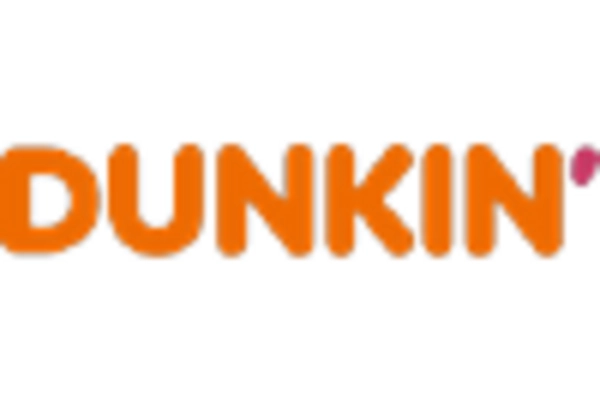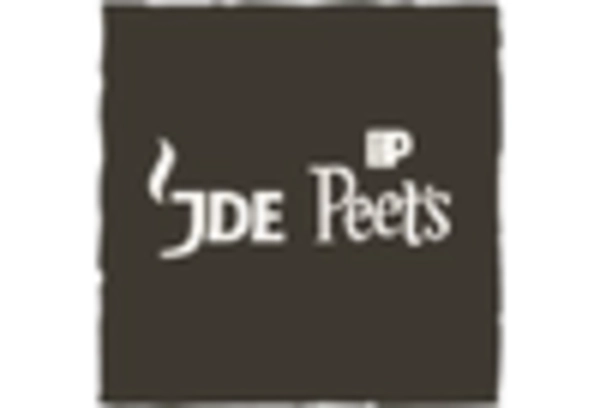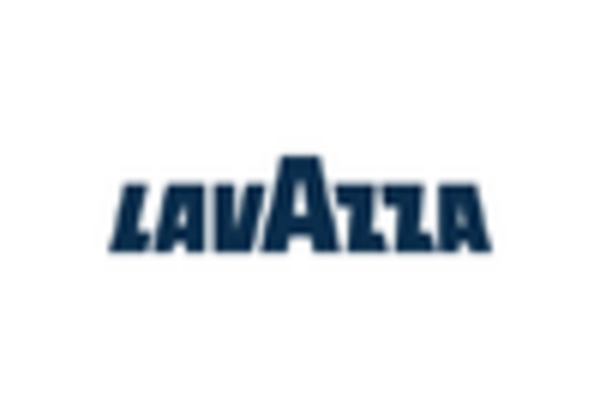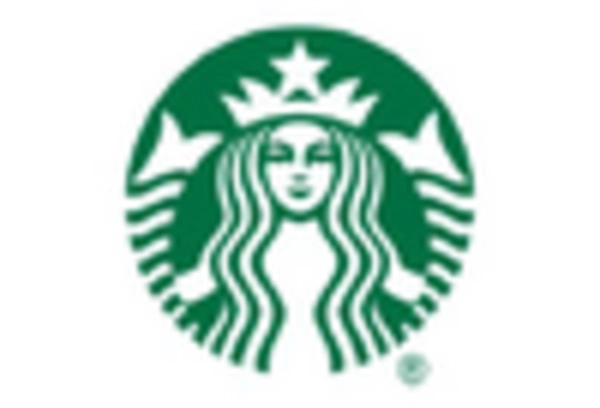Consumer Health Consciousness
The increasing awareness of health and wellness among consumers appears to be a pivotal driver in the coffee market. As individuals become more health-conscious, they are gravitating towards coffee products that offer functional benefits, such as organic or low-acid options. This trend is reflected in the growing demand for specialty coffees that are perceived as healthier alternatives. In the UK, the market for organic coffee has seen a notable rise, with sales increasing by approximately 15% over the past year. This shift indicates that consumers are willing to pay a premium for products that align with their health values, thereby influencing the overall dynamics of the coffee market.
Evolving Consumer Preferences
The coffee market is currently experiencing a transformation in consumer preferences, particularly among younger demographics. Millennials and Generation Z are increasingly seeking unique and diverse coffee experiences, which has led to a surge in demand for specialty and artisanal coffee products. This demographic shift is driving innovation within the market, as brands strive to cater to the evolving tastes of these consumers. In the UK, the specialty coffee segment has expanded significantly, with a reported growth rate of 20% in the last year. This evolution in consumer preferences is reshaping the competitive landscape of the coffee market, compelling traditional brands to adapt or risk obsolescence.
Sustainability and Ethical Sourcing
Sustainability and ethical sourcing practices are becoming increasingly critical in the coffee market. Consumers are now more informed about the environmental and social impacts of their purchases, leading to a heightened demand for sustainably sourced coffee. Brands that prioritize ethical sourcing and transparency in their supply chains are likely to gain a competitive edge. In the UK, approximately 30% of coffee consumers express a preference for brands that demonstrate a commitment to sustainability. This trend not only influences purchasing decisions but also encourages companies to adopt more responsible practices, thereby shaping the future of the coffee market.
Convenience and On-the-Go Consumption
The fast-paced lifestyle of modern consumers is driving a significant shift towards convenience in the coffee market. As more individuals seek quick and accessible coffee options, ready-to-drink (RTD) coffee products are gaining traction. The UK market has seen a remarkable increase in RTD coffee sales, with a growth rate of around 25% in the past year. This trend indicates that consumers are prioritizing convenience without compromising on quality. As a result, coffee brands are innovating their product offerings to include portable and easy-to-consume options, which is likely to continue influencing the coffee market in the foreseeable future.
Digital Engagement and E-commerce Growth
The rise of digital engagement and e-commerce platforms is reshaping the coffee market landscape. With the increasing reliance on online shopping, coffee brands are leveraging digital channels to reach consumers more effectively. The UK has witnessed a substantial increase in online coffee sales, with e-commerce growth estimated at 30% over the past year. This shift not only provides consumers with greater access to a variety of coffee products but also allows brands to engage with their audience through targeted marketing strategies. As digital engagement continues to evolve, it is likely to play a crucial role in the future trajectory of the coffee market.
















